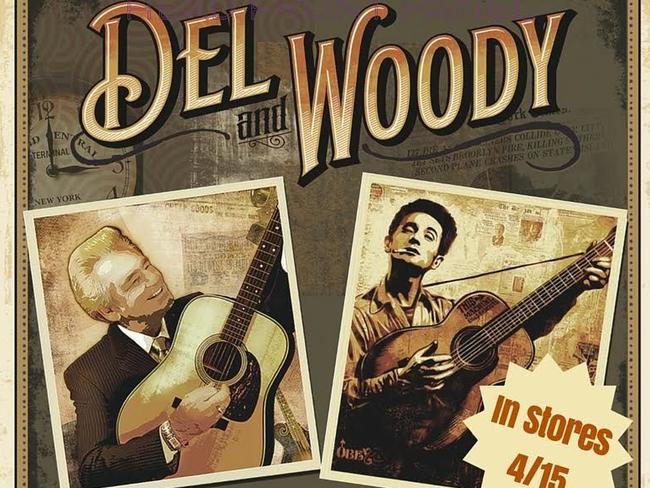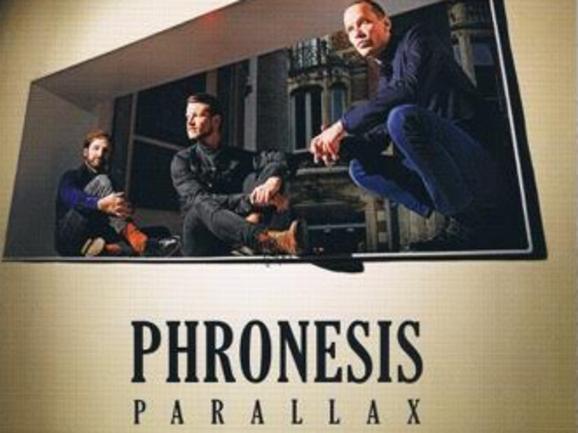Music reviews: Elza Soares; Del McCoury Band; Nicholas Young; Phronesis
With the Rio Olympic Games looming, samba queen Elza Soares has produced an album of bloodcurdling protest songs.
WORLD/ROCK
A Mulher do Fim do Mundo
Elza Soares
Mais Um Discos/Planet
4 stars

The Rio Olympic Games may be on the horizon, but these are far from golden days for Brazil. Indeed, latest news reports suggest that South America’s largest country is in political and social turmoil.
An improbable new album that pairs a veteran Rio de Janeiro diva with a maverick crew of experimental Sao Paulo players reflects the country’s present ills, addressing some of the burning issues of the day, including corruption, racism, drug addiction and domestic violence, with the inherent vitality of Brazilian rhythm and the intensity of punk rock.
As an artist who champions Brazil’s downtrodden and cries out against racial, gender and sexual discrimination, Elza Soares is an appropriate conduit for protest song. Adding street cred, this septuagenarian queen of samba has walked on the wild side, boasting a backstory that reads like a soap opera script.
Born in a favela and coerced into an abusive marriage while still a child, she was widowed with three children by 21 and expelled by the military junta for having an extramarital affair with legendary Brazilian footballer Garrincha. The vicissitudes of Soares’s roller-coaster life are encapsulated in the extraordinary vocal range that gives A Mulher do Fim do Mundo / The Woman at the End of the World its potency.
Although the singing is soothing and sensitive, supported by strings in penultimate song Solto, and plaintive when rendered a cappella on the opening and closing pieces Coracao do Mar and Comigo, the sound elsewhere on her 34th album is the antithesis of Copacabana bossa nova croon chic.
The predominant disposition of a set exclusively composed for the singer in the style of so-called samba sujo (dirty samba) is tense and cacophonous, with Soares screaming, gurgling and spitting out lyrics over screeching horns in free-jazz mode, grungy rock guitar, sheets of white noise and a battery of Brazilian percussion.
The title track transfixes, as sweet strings, cavaquinho and mild beats give way to angsty carnivalesque groove and bloodcurdling affirmations of indestructibility from Soares. A punctuated account of domestic violence (Maria da Vila Matilde) is equally deadly, with the singer hissing a stream of angry words to the backdrop of a rumbling electronic wash, angular guitar, edgy drumming and inebriated trombone.
The astringent Benedita relates the demise of a crack-addicted transvestite — a “wounded beast” who “keeps a bullet between her breasts”. Another urgent afro-punk samba, Pra Fuder, portrays the feminist libido in its more extreme form over jazzy horn stabs and distorted slabs of electric guitar. Luz Vermelha speaks of “a country abused for centuries” while interlocking electric bass and guitar riffs and repeated lead lines weave menacingly in and out. Wild fiddling and clattering drums discombobulate behind a bluesy vocal in Canal. Guest band Bixiga 70 brings an afrobeat vibe to Firmeza before it too soars into avant-garde territory.
Tony Hillier
*

BLUEGRASS
Del and Woody
Del McCoury Band
McCoury Music
4.5 stars
Nora Guthrie struck gold when she offered Billy Bragg access to her father Woody’s unsung lyrics; Bragg dragged Wilco into the Mermaid Avenue project and the result was three albums’ worth of largely delicious tracks. She did it again when she enlisted Rob Wasserman for the Note of Hope album, featuring a range of top-notch interpreters. In 2009, watching the Del McCoury Band’s performance at the 50th anniversary Newport Folk Festival, it crossed her mind that if her father had been well enough to form a band in the 1960s, it would have sounded just like this.
Cue an overture, and though bluegrass supremo McCoury was unfamiliar with Woody Guthrie’s repute, he knew several of his songs. Nora Guthrie sent him lyrics, inviting him to put tunes to them. The result is this delightful collection, in which McCoury and his gang, which includes sons Ronnie and Rob on mandolin and banjo, respectively, plus Jason Carter and Alan Bartram on fiddle and bass, make the most of Woody’s wordplay.
From the humour of The New York Trains and Cheap Mike to the poignancy of Left in This World Alone, Because You Took Me In Out of the Rain and Little Fellow, the overwhelming impression is of songs written specifically for a bluegrass setting. The tunes don’t differ much but that only adds to the organic feel of an album that’s a delight from beginning to end.
Mahir Ali
*
CLASSICAL
Capricornia
Nicholas Young
www.nicholas-young.net
4 stars
There is a strange coherence about the music here, almost a direct line between three composers: Roy Agnew, Ferruccio Busoni and Elliott Carter. The three made deliberate efforts to cast aside the conventions of keyboard writing, exploring new ideas about melody, harmony, touch and colour.
That said, it is the Australian works here that excite me the most, two extended pieces by Agnew (1891-1944) — his Sonata Legend: Capricornia based on the 1938 tome by Xavier Herbert, and the Fantasie sonata. The intelligent argument advanced by Melbourne-based pianist Nicholas Young enhances Agnew’s reputation as the Australian Scriabin.
It is but one step from Agnew/Scriabin to the floating harmony of Busoni, not just the familiar Berceuse but also the capricious Chopin Variations, where Young milks every last drop of post-romantic intensity. Equally intense is the brittle brilliance of Carter’s early Piano Sonata (1946, revised 1982), already much recorded and remembered as central repertory for Australian pianists such as Carl Vine and Michael Kieran Harvey. Young’s performance emerges just as technically proficient, without the razzle-dazzle of others, which tend to deflect from the pervasive influence of Copland.
Indeed, such is its coherence of design and execution, Young’s entire program almost could be the dissertation of a doctoral scholar.
The recording, made in Salzburg in late 2014, could use a touch of room presence and the Model D Steinway sounds a little tired by the end of its workout. Not so this listener, who remained alert and excited throughout.
As this enterprising young pianist continues to peer into the darker corners of the piano repertoire, he will reward us with more discoveries, the bounty of which is already here on his debut recording.
Vincent Plush
*

JAZZ
Parallax
Phronesis
Edition Records/Planet
4.5 stars
This is the sixth album from Anglo-Scandinavian trio Phronesis, and their fourth for Edition Records.
Led by Danish bassist Jasper Hoiby, accompanied by British pianist Ivo Neame and drummer Anton Eger from Sweden, the trio is obviously democratic in its approach to content, each member having composed three of these nine tracks.
The group’s name is an ancient Greek word, translated as “practical wisdom”, a description, added to the word musical, that certainly applies to Phronesis’s virtuosic capabilities. The music is cerebral and descriptive but also swings mightily.
One of the leader’s pieces, Just 4 Now, demonstrates the trio’s peak driving mode, as Hoiby’s bass pushes vibrantly through the busy complex of drums and piano and delivers a fast-moving solo of clever rhythmic emphasis.
Neame’s Manioc Maniac has nothing to do with the cassava (also known as manioc) but employs a good serving of racing, maniacal high-energy piano right from the start, as drums and bass rush it all along to an abrupt conclusion.
The opener, 67000MPH by Eger, is another high-speed outing, initially at least, with a smart piano and bass unison riff and Eger’s hyperactive cymbals, moving to a medium tempo later, again showing the trio’s almost telepathic communication.
Stillness, with its slow, mysterioso beginning, has all three players contributing, as the leader adds the arco’d bass, but it moves first into a striding rhythm and then into a hard-swinging passage riding to the conclusion.
Phronesis is at the world forefront of accomplished jazz piano trios, with high-calibre individuals combining perfectly on their originals in a decidedly Eurojazz style.
John McBeath


